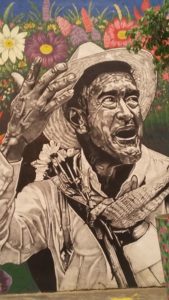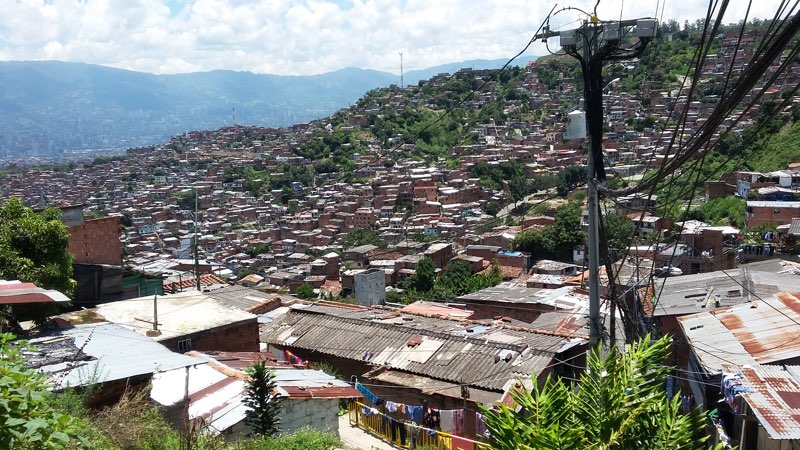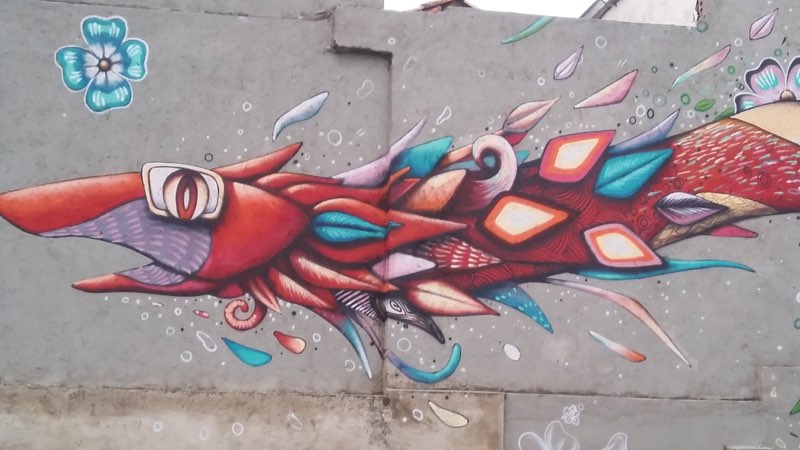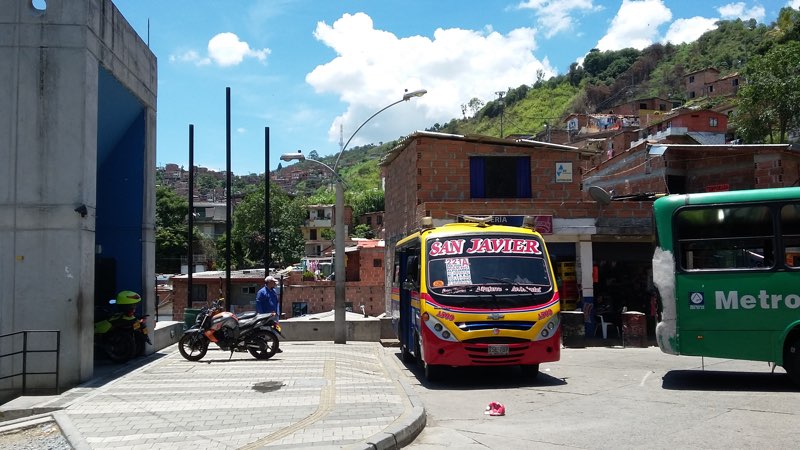I am slowly learning about Medellin. There is much to know as it has a long history. Today I learned firsthand about the strata system. Medellin is divided into six strata: 1 and 2 are lower income, 3 and 4 are middle income, and 5 and 6 are upper income. Today I was taken to a community which is considered strata 1. To get there I had to climb what felt like a mountain of stairs. By the time I got to the top, my legs were shaking and I was quite tired. The community has electricity, but no running water. The people we met along the way welcomed the YMCA staff with open arms. It was obvious to me that there was a relationship that ran far and deep. Once at the top, we talked with the nuns who lived there and ran a kitchen. They feed the children and the elderly every day.

I spent the afternoon talking with a social worker named Julian (who works for the Y) about the education system. This is what I learned:
Although it is considered a right for all to receive education, the poorer communities face many issues: Teachers who agree to come to these communities receive less pay, often travel for 3 hours (1 ½ hours each way) and have larger class sizes. It is not uncommon for 60 students to be in one class. It is likely that a teacher will find him/herself caught between fighting gangs, drug issues and bullying. All of this adds up to an inferior education.
Once a student completes high school, the poor primarily have 3 viable options:
- Join the army
- Become a parent
- Work – usually physical labor
A fourth option is university, but this is difficult as they have likely received an education that is inferior to those against whom they will be competing for the highly sought-after public Universities. Each year, 80,000 applications are received for 10,000 spots. In order to be considered, you have to sit an exam. If you are not accepted at a public University, a person can apply to the private universities, but this usually comes with a hefty price tag. Recently another option is opening up to the community. Public Works is now beginning to offer scholarships, but you have to agree to stay and work in the community.
In order to improve this situation, the YMCA has begun to offer university preparation courses. This not only gives the poorest of the community a better chance, but as youth are accepted, they inspire others to dream.
So, what does Julian believe needs to be done? The public education system needs to be shaken up:
- The student/teacher ratio needs to be addressed
- The content of the classes needs to become relevant to life
- Add labs to the schools (students need not only to rely on books for their education, they also need to experiment and see what they are learning)
- Teachers need to teach differently to different students
- Verbal and physical discrimination must stop in the schools (teachers need to take a more active role in ensuring the safety of the students)
Julian had heard that I enjoy art, so, later, he took me on tour of downtown. The tour focused on graffiti and bronze statues at Botero Square Sculpture park.



